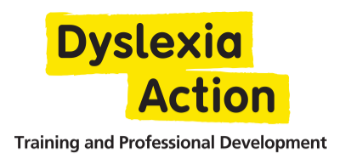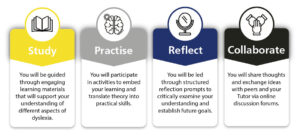

 Site Navigation
Site Navigation

This course has been developed by our team of experienced Educational Psychologists, who are familiar with the challenges of school-life. The course will provide an understanding of the impact of emotions on the thinking brain and its implications for learning. It provides an introduction to key elements of current research in this area, alongside tools and strategies that can be utilised to develop connectedness and relationships.
In the ‘Study’ sections of the course, you will be guided through materials that will support your understanding of different aspects of The Emotionally Connected Classroom before moving onto the ‘Practice’ section, in which you will undertake activities to embed the more theoretical information into practical activities. From there, you will be prompted to reflect on your learning in practice before engaging in social learning ‘Collaborate’.
Supported throughout by our team of experienced tutors, this practice-led course will help you to build your practical skills and enable you to create an effective relating classroom.
By completing this unit, you will be able to:
✔ 100% online training
✔ Access anywhere
✔ No live delivery
✔ Developed by education professionals
✔ Tutor support through online forums
✔ CPD Standards Office Accredited
✔ Level 5, mapped against Ofqual level descriptors
✔ 30 hours of self-paced study, over 8 weeks
✔ Set start and assignment submission dates
✔ Delivered through our Campus Online platform

This course is suited to anyone who would like to improve their relational approach to working with children and young people in their setting. For example:
Participants will need to be qualified to Level 3 (A Level or equivalent).
Please note: we reserve the right to request information in support of your application.
Teaching assistants must be mentored by a qualified teaching professional whilst on the course
Our courses are delivered through Campus Online, our unique online learning platform.
Campus Online allows you to study at your own pace, without the need to travel, or commit to particular dates or times. You’ll log in to access your study materials, contact your tutor for support, and connect and network with other delegates.
£295 + VAT
There are no additional costs for International delegates.
The Emotionally Connected Classroom course runs three times a year. Please click on your preferred date below to make a booking.
Please note: that we reserve the right to change/cancel course dates and/or schedules subject to booking numbers.
“I found a lot of the course material extremely interesting. I especially like the video context, and the presentation. Dyslexia Action have excelled!”
“The course was perfect, the timing, the material, tasks were very well planned.”
“The course allowed me to understand the brain and behaviour in a way which will ensure I’m more empathetic and more purposeful in my use of language and strategies.”
This unit is comprised of three study cycles, each of which includes a Study, Practice, Reflect, and Collaborate section. There are also associated practical tasks, with reference to current research and case studies.
